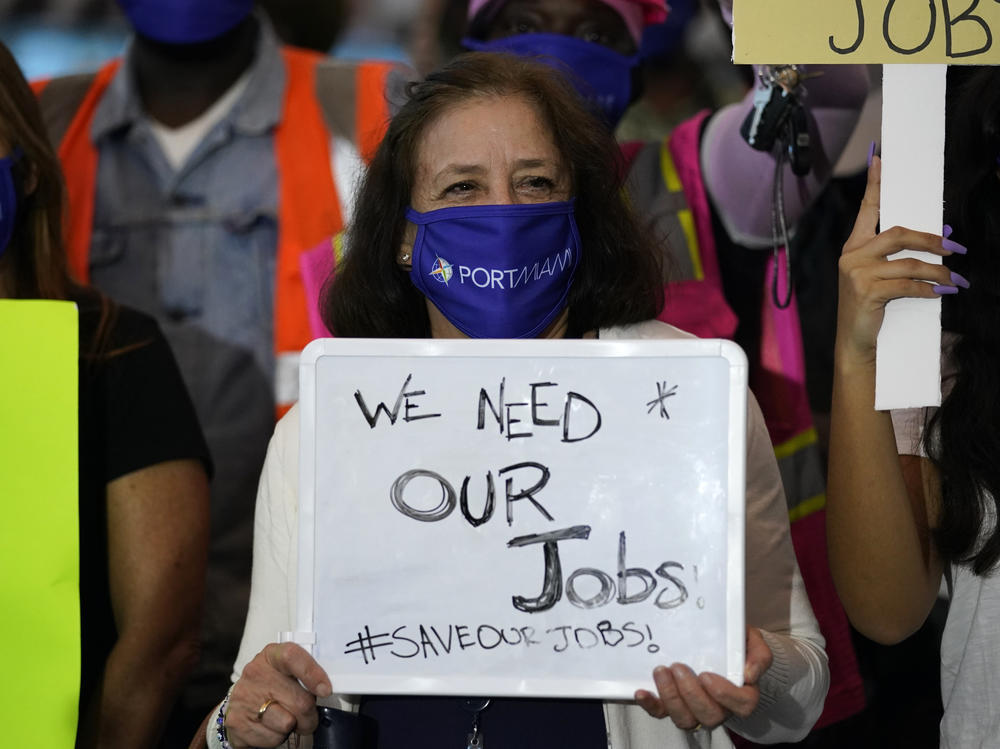Loading...
Section Branding
Header Content
Unemployment Drops To 6.9%, But Pandemic Surge Clouds Recovery
Primary Content
Updated at 9:02 a.m. ET
U.S. employers added 638,000 jobs last month as the economy continued its slow recovery from the coronavirus recession. Job growth slowed for the fourth month in a row.
Unemployment fell to 6.9%, from 7.9% in September, even as more than 700,000 people entered the labor force. Women rejoined the workforce at nearly twice the rate of men, partially reversing a female exodus in September.
The unemployment rate has fallen sharply from its peak of 14.7% in April. But the economy has still recovered just 54% of the 22 million jobs that were lost during the spring, when businesses abruptly shut down in a desperate effort to slow the spread of the pandemic.
Forecasters worry job growth may slow further if a winter spike in coronavirus infections discourages people from shopping or eating out.
"They may pull back in a situation where suddenly the cases are everywhere," Federal Reserve Chairman Jerome Powell said Thursday. "That's a risk that we have as we go into the fall now and the cases spike. That could weigh on economic activity. One would expect that it would."
The U.S. topped 100,000 new COVID-19 cases on Wednesday and Thursday, and infections are on the rise in most parts of the country.
Some industries, such as manufacturing, have found ways to operate successfully despite the pandemic. Factories added 38,000 jobs last month. Construction is also booming, thanks to strong demand for housing and rock-bottom interest rates. Construction crews added 84,000 workers in October.
But businesses that depend on gathering large groups of people together have struggled. Airlines, restaurants and entertainment venues were among the early casualties of the pandemic. Service industries have since bounced partway back, but a survey released this week pointed to slowing growth.
October's job gains were reduced in part by the Census Bureau, which laid off 147,000 temporary workers as it wound down its decennial headcount. The Census Bureau had hired 238,000 temporary workers in August. State and local governments also cut 159,000 jobs in education.
As the recession drags on, more people are exhausting their regular unemployment benefits, which typically last for 26 weeks. As of mid-October, nearly 4 million people had hit that limit and begun collecting benefits under a new federal program that provides an extra 13 weeks of aid. That program is set to expire at the end of the year.
Powell cautioned that the longer people are out of work, the more difficult it may be to find new jobs.
"The record is, if you don't get back in fairly quickly, it can be harder to get back in," Powell said. "That holds down the whole economy. And by the way, it also places enormous burdens on individuals."
Copyright 2020 NPR. To see more, visit https://www.npr.org.

